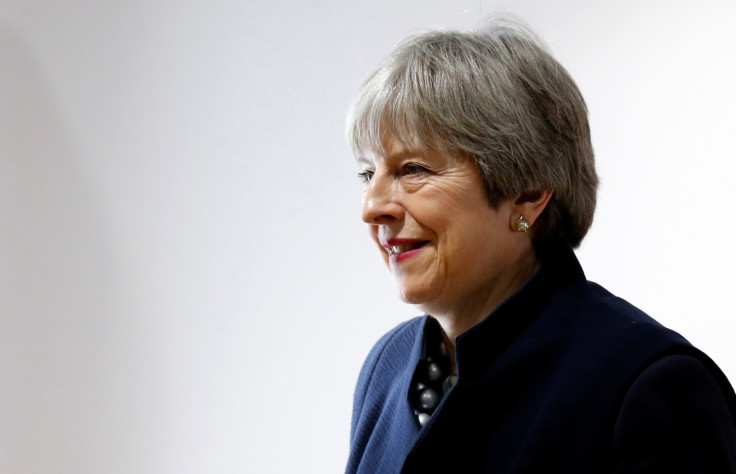Theresa May 'has four days to salvage Brexit deal or faces leadership threat'
The UK PM will hold urgent talks on Northern Ireland's post-Brexit status with DUP leader Arlene Foster.

The British prime minister reportedly has until the end of the week to rescue the Brexit deal scuppered by the Democratic Unionist Party party propping up her government, or face a leadership challenge.
Theresa May will hold urgent talks on Tuesday (5 December) with DUP leader, Arlene Foster, who vetoed the Brexit deal over concerns that Northern Ireland would have a different post-Brexit status than the rest of the UK.
Before opposing the deal on Monday (4 December), it emerged that DUP leader Foster only knew the outline of the Brexit document, but not the wording that specified how Northern Ireland could effectively remain in the customs union and the single market.
And while the prime minister will seek ease the concerns of the DUP, a senior Tory told the Times that May cannot concede anything substantive to Dublin.
"If, to save their blushes, the Irish agree to a meaningless and frankly unenforceable set of words then great. If they don't, or Theresa May goes too far, then we and the DUP will withdraw support and there could be a leadership change this side of Christmas," the source said.
European diplomats have expressed concern that May does not have the authority with Brussels to reach a deal ahead of a European Council meeting on 14 December, with one EU source telling the Times: "This is what we have been worried about for months".
EU sources have told the newspaper if no deal is reached by Friday (8 December) none is likely to be agreed at the EU summit, leading to Tory backbench MPs to pressure May to walk away if Brussels does not start trade talks.
German finance minister Peter Altmaier said, according to the paper: "We are in the middle of a very, very complicated process. It is very difficult."
Meanwhile, the Scottish first minister Nicola Sturgeon, and Welsh first minister, Carwyn Jones, said they should get separate deals if Northern Ireland did.
In a press conference, the British prime minister said: "On many of the issues there is a common understanding and it is clear that we want to move forward together. But on a couple of issues some differences do remain."
A DUP source told the Telegraph: "We have always said Northern Ireland must leave the EU on exactly the same terms as the rest of the UK. You shouldn't cobble something together just to announce a deal, because it will fall apart further down the line."
Dublin will not accept any attempt to alter the draft text, with Irish prime minister Leo Varadkar, saying: "We had agreed a text. That text was also agreed by the UK government and it was agreed by the EU task force."






















